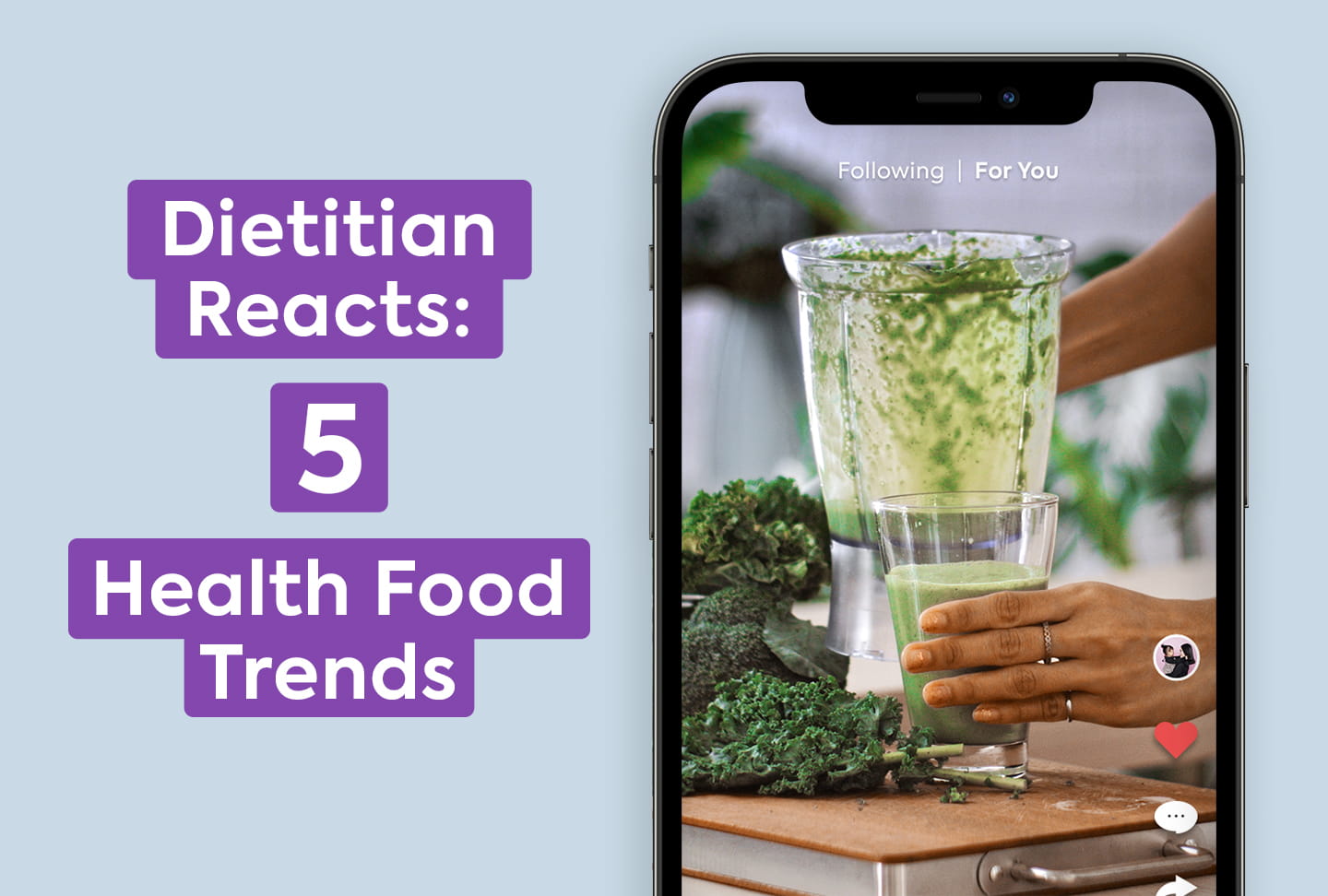By Christen Miller, Wellstar registered dietitian
In the ever-evolving world of diet and wellness, social media has become a breeding ground for the latest health food fads. As a registered Wellstar dietitian with experience helping hundreds of people lose weight and keep it off, my goal is to help you cut through the internet noise and develop a clean, balanced diet. So, without further ado, here are the 5 most popular health food fads and 5 corresponding tips to help you eat better than ever.
1. Juicing
When you put fruits or vegetables into a juicer, you’re left with a liquid that contains most of the vitamins, minerals and plant chemicals found in those foods. If you’re someone who really doesn’t enjoy eating fruits and vegetables, then juicing is a good way to add those foods to your diet. However, there are downsides to juicing. Whole fruits and vegetables are packed with healthy fiber, which is lost during the juicing process. Fiber plays a big role in digestive health, so my recommendation to juicers is to consider putting your fruits and vegetables into a blender rather than a juicer. Blending still delivers all the vitamins and minerals of the fruit or vegetable while preserving the dietary fiber your stomach needs to run smoothly.
2. Mushroom coffee
It might seem like a niche beverage, but mushroom coffee has exploded in popularity in the last few years. Typically, these products contain a mix of ground mushrooms and ground coffee beans. Marketers of these products make numerous claims regarding their health benefits, including stress reduction, reduced inflammation and better sleep. While it’s true that the adaptogens found in mushrooms may help achieve these effects, it’s important to note that the benefits are largely unproven. If you consume mushroom coffee and feel that it is beneficial, continue to enjoy it. This product, however, can be difficult to process, particularly if you have kidney or digestive issues. An alternative option is to simply enjoy fresh mushrooms added to meals and snacks instead.
3. Keto diet
Whether it’s on the internet, on a podcast or from a friend, almost everyone has heard about the keto diet. At a high level, the keto diet is a high-fat, low-carb diet designed to switch your body from using glucose (produced by carbohydrates) to using ketones (produced from fat) for energy. Typical foods consumed on the keto diet include things like eggs, avocados, salmon, butter, nuts (such as walnuts and pecans), low-carb veggies (like broccoli, spinach and kale) and unprocessed cheese. While there’s still not enough long-term data to conclusively say the diet is safe over a long period, it has produced great results for overweight or diabetic patients. This approach to food can help get your body out of metabolic crisis and into a healthier state. If you’re considering trying the keto diet, my recommendation would be to consult with your healthcare provider before doing so. They can make you aware of potential medical risks, so you can make an informed decision.
4. Ginger shots
Despite the spicy taste of ginger shots, many people consume them to reap the root’s many health benefits. Perks of consuming ginger include helping with digestion and reducing inflammation, thanks to the active ingredient gingerol. There's some evidence that it can improve insulin sensitivity, helping to stabilize blood sugars, and it may even help to reduce cholesterol levels. Despite these benefits, one should still be mindful about this product. Ginger is known to cause heartburn in some people. If you're prone to heartburn, dilute ginger juice to help prevent this side effect. Additionally, if you already take a ginger supplement, there's no need to also take ginger shots. Consuming too much ginger may cause nausea and gastric reflux.
5. Collagen supplements
Collagen is one of the most universal protein sources in the body. It's a major component in our hair, skin, cartilage, tendons and even our bones. Recently, collagen supplements have risen to the top of many people’s daily wellness routines, thanks to their purported skin, hair and nail benefits. While the effectiveness of topical collagen skin creams and serums is doubtful, oral collagen supplements may actually be beneficial. Research is limited yet some studies have found that oral collagen supplements produce substantive improvements to skin elasticity as well as joint mobility. There are, however, notable conflicts of interest with many of these studies, given that most are funded, in some part, by related industries.
While social media can be a valuable source of inspiration, it's crucial to approach health food fads with a discerning eye. There's no one-size-fits-all solution to nutrition and balance is key. As a dietitian, my advice is to prioritize whole, minimally processed foods, tailor your choices to your individual needs and, when in doubt, seek guidance from a qualified nutrition professional. To schedule an appointment with an expert, visit Wellstar Center for Best Health, where you’ll find customized plans for childhood and adult obesity, diabetes management, cardiovascular disorders and so much more.
Christen Miller completed her dietetic internship at Life University and has more than 10 years of experience as a dietitian. She currently serves as a bariatric dietitian with Wellstar.

Wellstar’s social media content, and all related media, are provided for educational and informational purposes only and does not constitute providing medical advice or professional services. Consult a physician for the diet that’s best for you.

